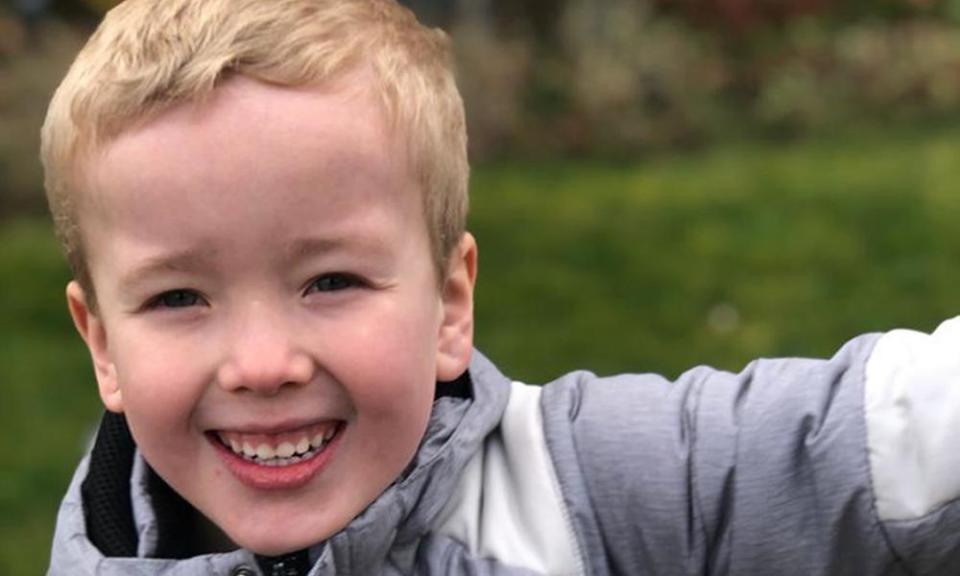Arthur Labinjo-Hughes: abuse cases missed due to cuts, Climbié inquiry chair says

A crossbench peer who led the inquiry into the death of Victoria Climbié has warned that “marked” cuts to social care funding had taken their toll on child protection services that could have saved Arthur Labinjo-Hughes.
Herbert Laming said the reduction in funding for social care in the last 10 years meant children like Arthur, whose abuse and death has shocked the nation, were being missed.
Arthur had been poisoned, starved and beaten in the weeks before his death. His stepmother, Emma Tustin, was found guilty of his murder while his father, Thomas Hughes, was found guilty of manslaughter. On Friday, Tustin was sentenced to life in prison with a minimum term of 29 years, and Hughes to 21 years.
Related: Arthur Labinjo-Hughes: vulnerable children ‘slipped from view’ in pandemic
The trial raised serious questions about how his suffering was missed after it was revealed family members had reported concerns to social workers and police prior to his death.
Laming, who chaired the 2001 public inquiry into eight-year-old Victoria’s death and was later appointed to review the case of Peter Connelly (known as Baby P), told the BBC Radio 4 Today programme that the lack of funding had led to a “tremendous reduction of preventive services and family support services”.
Both Victoria and Baby P had been neglected, abused and killed.
Laming said: “The [frontline services] are not able to bring families into a day centre to see how the child reacts to the parents. They’re not able to observe a child with other children and then to see them go back to the adult in their lives, and social workers often find themselves in this day and age out on their own. And we must do something about that.”
He said the report he made following the case of Victoria Climbié was “taken very seriously” and that people tried “very hard initially to implement the recommendations”.
“They could have been improved but I think the marked reduction in funding of local authorities in the last 10 years has had a real withdrawal from frontline services. And I think it’s become something of a crisis service, rather than a preventive service.”
He also said social workers must be properly trained and supported. “I think that the quality of the training of social work needs to be looked at again,” he said.

The director of the Association of Child Protection Professionals said Arthur should have been the top priority of local social services.
“He wasn’t on a child protection list, he wasn’t one of the children that you would have considered to be a priority,” Wendy Thorogood told Times Radio, adding that lockdown was a factor in why this wasn’t the case.
“We have to remember this was under Covid, so he wasn’t actually getting additional oversight from school and education,” she said. “I feel they took probably the assessment he was out happy, playing, a boy being boisterous.”
Thorogood suggested social workers didn’t look closely enough at the bruises, and the photographs taken by the child’s grandmother should have been assessed.
She added: “The biggest thing is to actually speak with the child and I can’t say whether or not that actually happened.
“Equally, it’s a society responsibility, in relation to his cries were so abnormal if we’d had an anonymous call from one of the neighbours that could have given them more power to do the investigation,” she said.
Solihull’s Local Child Safeguarding Partnership have launched an independent review into the case.
Football clubs Aston Villa and Birmingham City have confirmed they will hold a minute’s applause in the sixth minutes of their games in tribute to Arthur, who was a Birmingham fan.
During the trial it emerged that Arthur’s prized football shirts had been torn up in front of him as a punishment.

 Yahoo News
Yahoo News 